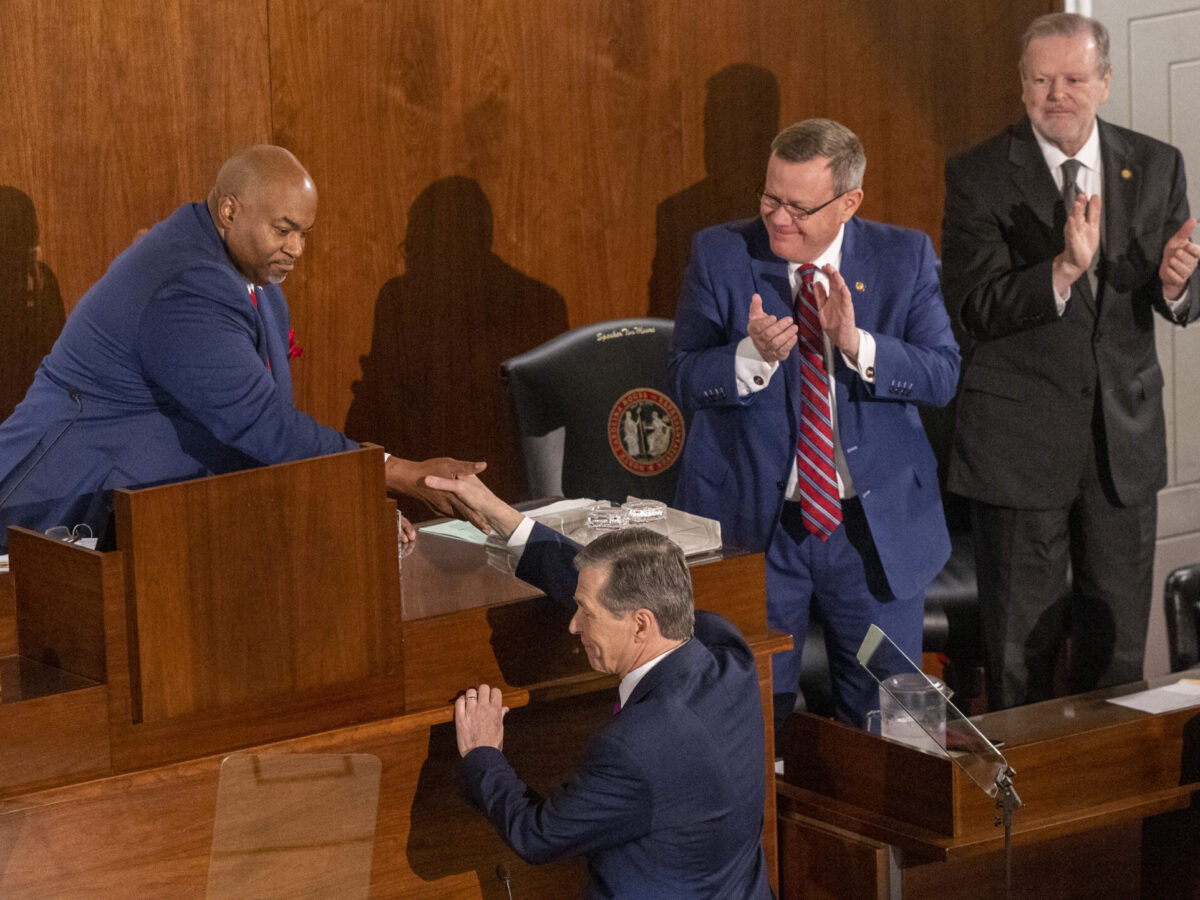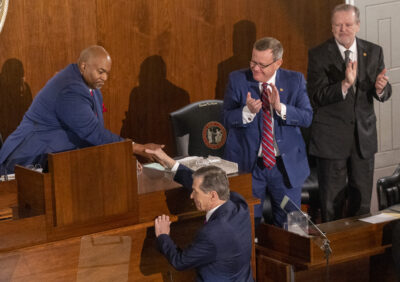

“We have the money this year and next to fund the plan,” Gov. Roy Cooper declared in his final, and surely his strongest, State of the State address to the General Assembly. The Democratic governor urged the Republican legislative majority to fund two years of an eight-year public education advancement plan even as lawmakers resist court orders forcing them to do so.
While North Carolinians await further Supreme Court action and legislative budget-making, it’s worth focusing on that resounding phrase: “We have the money.” An unusual confluence of state revenue growth and a surge in federal funding has opened opportunities for long strides forward in education, health, and infrastructure.
Indeed, could it be that the political stars are aligning for a substantial increase in pay for educators?
The State Board of Education has recommended salary increases for teachers “in excess of 10%” — by a unanimous vote of Democrats and Republicans. In his speech to the legislature, Cooper said his forthcoming budget proposal “gives teachers and principals double-digit raises.”
In a recent radio interview, state Superintendent of Public Instruction Catherine Truitt, a Republican, said that, “I will always tell the General Assembly, teacher pay needs to be more competitive with other professions with like education credentials.” Similarly, in his pre-recorded response to the governor’s address, Republican Lt. Gov. Mark Robinson said, “We must hold them (teachers) to professional standards, and we must pay them as the professionals they are.”
Robinson did not mention a specific pay-raise amount to reach peer-professional pay. But in its recent Top Education Issues 2023-24 report, the Public School Forum got specific: 24.5%. The Forum drew on the analysis of the Economic Policy Institute, which has tracked national trends in teacher pay for two decades.
Saying that North Carolina has “one of the largest teacher pay penalties in the nation,” the Forum called on the General Assembly to “increase state-funded base pay for teachers by 24.5% to reach the national average and eliminate the teacher pay penalty.”
It’s probably unrealistic to expect Republican budget-writers to enact a pay increase of that magnitude in a single fiscal year. Still, the legislature can put North Carolina on a short-timeline course to eliminate the pay penalty — to encourage more young people to enter education as a career and to discourage well-qualified teachers from departing too soon.
If “we have the money” for a jump in educators’ pay and more, where is it coming from?
Legislative and administration budget analysts jointly forecast “overcollections” of $3.25 billion in the 2022-23 fiscal year — that is, revenues above the $30.5 billion previously certified. They attributed the surge in revenues to corporate profits, robust consumer spending, and only modest decline in income tax collections.
Meanwhile, the governor’s State of the State was remarkable for his litany of federal funds, flowing largely from pandemic-relief measures, as a driver for important initiatives. Cooper mentioned $800 million to “stabilize child care,” $2.3 billion to rebuild water systems in nearly every county, and “tens of millions” for mental health “first aid” in schools.
The governor urged lawmakers to expand Medicaid sooner rather than later not only to extend health insurance for a half million residents but also to tap the full $1.8 billion in federal assistance. He pointed to $2 billion directed to extending high-speed internet to every home.
In his response speech, the lieutenant governor resorted to time-worn rhetoric in assailing the “Biden Administration’s tax-and-spend philosophy (that) is hurting North Carolinians at every turn.” And then he welcomed the efforts of state and federal officials to extend high-speed internet, saying it shouldn’t be a partisan issue.
In pre-pandemic years, federal funding represented about 10% of North Carolina’s expenditures on public K-12 education. According to the budget highlights just released by the Department of Public Instruction, federal money amounted to 20% of education spending in 2021-22 with child nutrition and Covid funds included.
As Cooper made clear, federal assistance has positioned North Carolina to meet critical public-serving objectives in a growing state. Now at issue is whether this modern American mega-state will marshal its own resources to the extent that it is capable in support of public education — so that governors and lawmakers know that “we have the money.”




